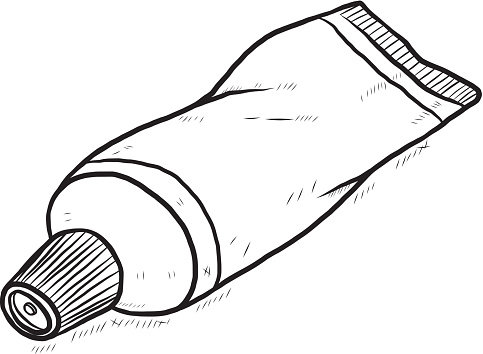Sodium Fluoride
About Sodium Fluoride
Sodium Fluoride is used to treat otosclerosis and helps reduce symptoms such as tinnitus (ringing in the ears) and imbalance associated with abnormal changes in the ear bones.
Sodium Fluoride contains Sodium fluoride, which reduces osteoclastic and increases osteoblastic bone formation. It slows bone resorption (the process by which bones are absorbed and broken down in the body), helps maintain bone density, and prevents excessive bone turnover in the middle ear. It helps restore normal bone metabolism in the bony part surrounding the inner ear and slows down the progression of the disease.
There is limited information on the side effects of Sodium Fluoride. If you notice any unusual symptoms while taking Sodium Fluoride, please consult your doctor.
If you are allergic to fluoride, inform your doctor before taking Sodium Fluoride. It is contraindicated in pregnant and breastfeeding women.
Uses of Sodium Fluoride
Medicinal Benefits
- Sodium Fluoride helps manage otosclerosis, a condition that causes abnormal bone growth in the middle ear.
- Stabilises hearing by slowing down bone resorption and promoting healthy bone metabolism.
- It may help reduce symptoms such as tinnitus (ringing in the ears) and imbalance associated with abnormal changes in the ear bones.
- Supports calcium and phosphate balance in bone tissue, maintaining normal bone strength.
- It stabilises hearing loss associated with otosclerosis.
- It prevents otosclerotic damage from getting worse.
- Sodium Fluoride is also administered before surgery. Fluoride therapy is used prior to surgery if there is progression of the cochlear component of hearing loss.
Directions for Use
- Take Sodium Fluoride with or without food as advised by the doctor.
- Follow your doctor's instructions on the dosage and timing of Sodium Fluoride.
- Swallow it as a whole with a glass of water.
- Do not crush, break or chew it.
Storage
Drug Warnings
- If you are allergic to fluoride, inform your doctor before taking Sodium Fluoride.
- Sodium Fluoride is contraindicated in pregnant and breastfeeding women.
- Sodium Fluoride is not recommended in children before skeletal growth has ended. Therefore, please consult a doctor before using Sodium Fluoride for children.
Drug Interactions
Drug-Drug Interaction: Inform your doctor if you are taking any other medicines or supplements.
Drug-Food Interaction: No interactions found/established.
Drug-Disease Interaction: Sodium Fluoride is contraindicated in patients with chronic nephritis with nitrogen retention and chronic rheumatoid arthritis.
Drug-Drug Interactions Checker List:
Safety Advice

Alcohol
consult your doctorLimited information is available. Please discuss this with your doctor if you have any concerns.

Pregnancy
unsafeSodium Fluoride is usually not recommended for pregnant women.

Breast Feeding
unsafeSodium Fluoride is usually not recommended for breastfeeding mothers.

Driving
consult your doctorLimited information is available. Please discuss this with your doctor if you have any concerns.

Liver
consult your doctorPlease consult your doctor before using Sodium Fluoride if you have liver problems.

Kidney
consult your doctorPlease consult your doctor before using Sodium Fluoride if you have kidney problems.

Children
cautionSodium Fluoride is not recommended in children before skeletal growth has ended. Therefore, please consult a doctor before using Sodium Fluoride for children.
Habit Forming
Diet & Lifestyle Advise
- Include milk, yoghurt, cheese, ragi, tofu, sesame seeds, and green leafy vegetables to increase calcium intake and support bone strength.
- Add vitamin D-rich foods such as eggs, fatty fish (salmon, tuna), and fortified cereals to enhance calcium absorption.
- Include magnesium- and zinc-rich foods such as seeds, nuts, whole grains, and legumes to support normal bone metabolism.
- Consume foods rich in antioxidants (Vitamins C and E); fruits like berries, and oranges, and vegetables like spinach and bell peppers help protect ear tissues from oxidative damage.
- Drink enough water throughout the day to stay hydrated and to maintain inner ear fluid balance.
- Limit salt intake, as excessive sodium can increase fluid pressure in the inner ear and worsen tinnitus or balance issues.
- Avoid excessive caffeine and alcohol, as they may worsen tinnitus or dizziness.
- Avoid smoking, as nicotine reduces blood flow to the ear and interferes with bone metabolism.
- Avoid loud noise exposure. Use ear protection in noisy environments to prevent additional hearing damage.
Patients Concern
Disease/Condition Glossary
Otosclerosis: It is a progressive hearing disorder caused by abnormal bone growth in the middle ear, especially around the stapes bone (one of the tiny hearing bones). Because of this abnormal growth, the stapes cannot vibrate properly, reducing the amount of sound that reaches the inner ear and causing hearing loss. Common symptoms include gradual hearing loss, often starting in one ear and progressing to both; difficulty hearing low-pitched sounds; tinnitus (ringing or buzzing in the ear); and dizziness or balance disturbances (rarely).
FAQs
Sodium Fluoride is used in the management of otosclerosis and helps reduce symptoms such as tinnitus (ringing in the ears) and imbalance associated with abnormal changes in the ear bones.
Sodium Fluoride contains Sodium fluoride, which reduces osteoclastic and increases osteoblastic bone formation. It slows bone resorption (the process by which bones are absorbed and broken down in the body), helps maintain bone density, and prevents excessive bone turnover in the middle ear. It helps restore normal bone metabolism in the bony part surrounding the inner ear and slows down the progression of the disease.
Yes, Sodium Fluoride reduces tinnitus (ringing in the ears) and imbalance associated with abnormal changes in the ear bones.
Sodium Fluoride is not recommended for chronic rheumatoid arthritis patients, as there may be an increase in joint symptoms during treatment, which subside after stopping.
Sodium Fluoride is prescribed for individuals diagnosed with otosclerosis to help slow its progression. It may be recommended for those in the condition's early stages or as part of a broader treatment plan. Please consult a doctor before using Sodium Fluoride to determine if it suits you.
Sodium Fluoride may take at least six months to show effects in stabilising hearing, improving vestibular symptoms, and slowing tinnitus progression in otosclerosis. However, its effectiveness varies among individuals, and continuous use is often needed. Please follow your doctor's guidance for the best results.
Sodium Fluoride cannot reverse hearing loss caused by otosclerosis. However, it may help to slow disease progression by strengthening bone structure and reducing further damage. Please consult your doctor for personalised advice and treatment.










